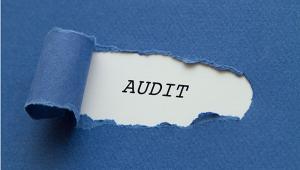
It was a remark that elicited nods of agreement across the room.
“The less we trust each other, the less efficient the state and society is likely to be.”
So said Professor Sir John Curtice, one of several excellent speakers at our annual conference, which this year focused on trust.
Is the public more distrusting of government and public bodies than in the past? It can feel like it in the current climate, but ‘not so’, says Sir John, a Professor of Politics at the University of Strathclyde.
In fact, levels of trust – while subject to fluctuations due to scandals like ‘Cash for Questions’ – have remained broadly steady over the last 40 years, he explained.
But what about audit? Auditors? Following the very public collapse of BHS and construction firm Carillion – a holder of major public sector contracts – there has been growing concern about audit quality in the corporate sector, and the impact on audit’s reputation.
Last year’s Kingman report and a second report, by the Competition and Markets Authority set out wide ranging proposals to improve trust in the sector.
Many of the changes called for are already features of the Scottish public-sector audit model that guides our work at Audit Scotland.
‘Following the very public collapse of BHS and construction firm Carillion – a holder of major public sector contracts – there has been growing concern about audit quality in the corporate sector, and the impact on audit’s reputation.’
Public sector bodies do not, for example, appoint their own auditors. The Auditor General appoints the auditors for all Scottish Government, NHS, further education and other central government bodies. And the Accounts Commission does likewise for all councils and local government bodies.
That helps ensure the auditor is free from any potential or perceived conflict of interest or other pressure that might compromise their judgement.
Sarah Howard, President of CIPFA, believes the profession south of the border is now at “a really pivotal point”, and said she “looked on in envy” at the public audit model in Scotland.
Gratifying as that was to hear, sitting beside Sarah on that afternoon conference panel was Gordon Smail, one of our Audit Directors. And his point is one all of us would agree with at Audit Scotland.
Yes, Scotland should take great pride in the way it delivers public audit, said Gordon, “but we need to be vigilant and must not be complacent”.
Quite. Audited bodies, politicians, academics and the wider public rightly need to have trust in our work. It is our contribution to a more efficient society and state, and we take that responsibility extremely seriously.
We’ve worked hard to develop trust in our reports and judgments. And both myself and the Accounts Commission will be reflecting with Audit Scotland colleagues on which measures outlined in the Kingman and CMA reports might be adopted to further improve audit quality.
In the meantime, a sobering thought for all of us who have made a career in audit was delivered in the closing conference remarks by Prof Graeme Roy, Director of the Fraser of Allander Institute.
“Most people have no idea what public audit is,” he said, adding that it’s not the job of the public to understand audit, “it’s Audit Scotland’s job to communicate the results and what it means for their day to day lives. That’s how trust can be improved.”
I agree; and clear, transparent communication is something we will be continuing to strive for in the rest of 2019.
This blog was first published on the Audit Scotland website.




















